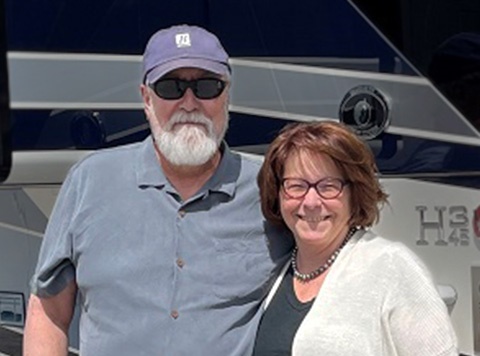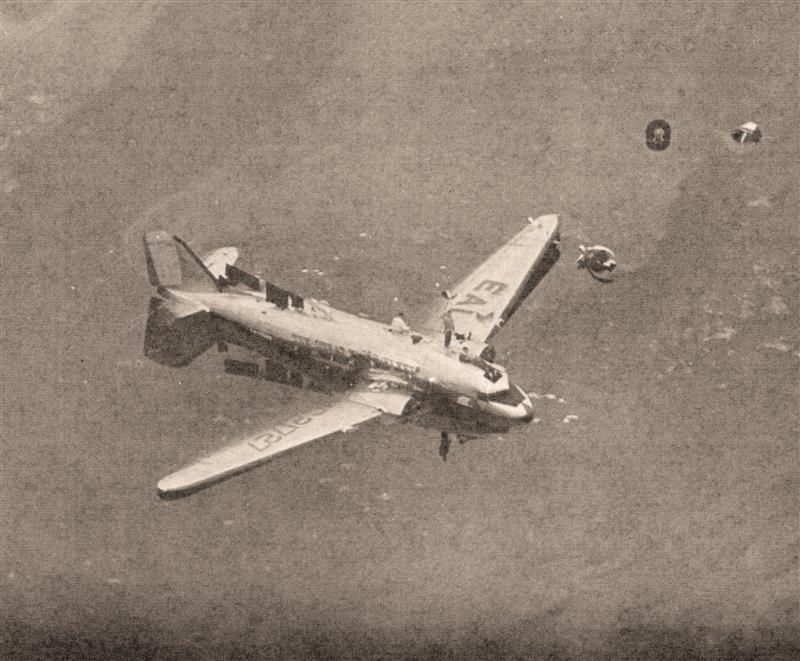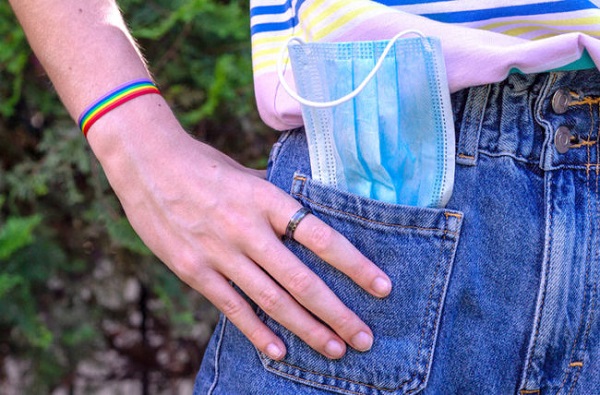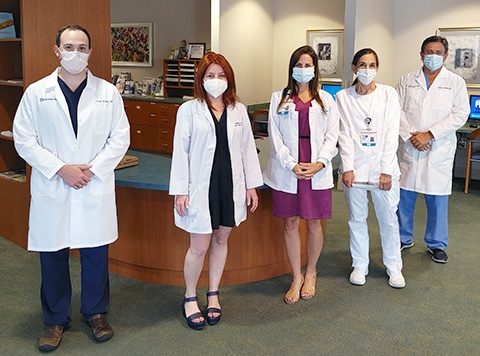Repaired Heart, Renewed Life

“My mission in life is not merely to survive, but to thrive; and to do so with some passion, some compassion, some humor and some style.”
Dr. Maya Angelou’s sage words aptly capture the spirit, charm and zest for life shared by Heather and Ivor Massey, Jr.
Born and raised in northern Montana, Heather spent much of her time outdoors and learned to drive large equipment on expansive rural roadways. Ivor grew up in Virginia and developed a strong sense of independence and adventure during his summertime family trips to Europe.
As dedicated professionals and travel enthusiasts, Heather and Ivor had active lifestyles in Virginia and took coast-to-coast RV trips visiting family and experiencing all the country has to offer. Diligent about her health, Heather worked with a trainer and exercised on the treadmill nearly every day. But a few years ago, she noticed persistent limitations in her daily regimen that would reveal a lifelong battle with heart disease.
A String of Oversights
Heather traces the start of her struggle with heart disease to age 4, when she was recovering from rheumatic fever. Heather and her family were assured she’d have no lasting effect from the illness. At 50, she was referred to a cardiologist and was told for the first time that she had rheumatic heart disease.
In 2018, Heather failed a stress test during a visit to her cardiologist at a local Virginiahospital. Yet, the medical team advised against surgery. At a follow-up appointment, her cardiologist recommended Heather could skip her next annual echocardiogram. When Heather's health further deteriorated, the cardiologist said the problem could not be her heart because her valves would not deteriorate that rapidly in one year’s time.
Heather’s condition continued to worsen and, in the fall of 2019, she was admitted to the hospital on an emergency basis when an echocardiogram showed she was in heart failure. During a diagnostic cardiac catheterization, Heather had a stroke.
Skeptical of the advice and care they had received, Heather and Ivor appreciated the 90-day stroke recovery window that bought them time to consider any future heart procedures. “We were determined to find the best of the best from that point forward,” saysIvor.
‘Best of the Best’
They asked friends and family for advice, and a dear friend introduced them to someone who had relationships with Cleveland Clinic, which U.S. News & World Report has ranked #1 in cardiology and heart surgery for 26 consecutive years. And so began Heather and Ivor’s own relationship with Cleveland Clinic. “We felt an enormous amount of relief to know that the next step would be a good step,” says Heather.
From the moment she met with a concierge attendant at Cleveland Clinic, Heather instantly felt at ease. “I really can’t say enough about the professionalism displayed by every single person during my time at Cleveland Clinic,” she says. “They make the experience so seamless and provide patients with all the information they need at precisely the right time.”
Heather’s doctors at Cleveland Clinic expressed disbelief that her previous cardiac care providers didn’t advise valve replacement after her failed stress test. “We recognized that Heather’s diminishing heart capacity required immediate intervention,” says Lars Svensson, MD, PhD. “I’m glad that she came to the Cleveland Clinic when she did.”
From clear, one-on-one communication with doctors to the compassion and expertise of the heart care team, Heather and Ivor felt informed and reassured throughout her procedure and subsequent recovery.
Upon Heather’s successful valve replacement surgery, her care team referred her to Krishnasree Rao, MD, a cardiologist with Virginia Commonwealth University whose department includes several Cleveland Clinic alumni. After receiving a pacemaker and defibrillator, Heather says her life is back on track with a heart that now functions at 45% capacity versus 20% when she started her treatment at Cleveland Clinic.
Setting New Standards of Care
Heather and Ivor feel grateful for the events that brought them to Cleveland Clinic and for being among a local network of Cleveland Clinic advocates who champion its life-saving care. “One of the most amazing things about Cleveland Clinic is that every patient receives equal attention and care,” says Ivor.
The couple makes generous annual gifts to support heart research, with the hope that Cleveland Clinic will continue to set global standards for modern, effective and efficient healthcare. “They’re competent, caring and go out of their way to ensure everything runs like clockwork,” says Ivor. “I’ve never experienced a healthcare system that works so well—one in which appointments are honored and patients aren’t waiting for hours upon hours.”
A year and several months later, Heather has eased back into her active lifestyle. “One of the best things the Cleveland Clinic team advised me is that you can’t hurt your heart, so it’s best to go ahead and exercise it,” Heather says. “So I push it, and I have a lot more energy as a result.”
Make a Gift
Your gift to Cleveland Clinic helps keep medical research moving forward. Each and every dollar has an impact. You can be the one to make a difference in the future of healthcare.
Cleveland Clinic Founder Treated at Indian River Hospital After 1941 Plane Crash

In the spring of 1941, Cleveland Clinic co-founder George Crile Sr., MD, and his wife Grace were on an expedition in Florida. Their mission was to gather specimens for Dr. Crile’s Museum of Intelligence, Power, and Personality that would open next to the original Cleveland Clinic Building later that year. They spent more than a week exploring the seas and wetlands around Miami, including taking a ride on the Goodyear blimp. Their final destination was the newly opened Marineland north of Daytona Beach, Florida, after which they would catch a train back to Cleveland.
On their flight from Miami to Daytona they ran into thunderstorms and the pilots of the Eastern Airlines DC-3 struggled to keep control. After entering what Dr. Crile described as a “tornado” the plane went into a flat spin and crashed into a swamp about 20 miles west-southwest of Vero Beach, Florida. Through incredible luck no one on the plane was killed, but both Dr. and Mrs. Crile, along with other passengers and crew, were severely injured. A large search and rescue effort took more than 12 hours to locate the plane half submerged in the alligator- and snake-infested swamp. Rescuers transported the survivors to a small 15-bed hospital on a gravel road. The name of the hospital? Indian River Hospital in Vero Beach, Florida.
The Criles remained at Indian River Hospital for more than a month recovering from their injuries. During their stay Dr. and Mrs. Crile’s caregivers included J.B. Kollar, MD, (formerly of Cleveland and who had worked with Dr. Crile before the founding of Cleveland Clinic), E.B. Hardee, MD, nurse Mrs. John Black and nurse Grace Gee. Mrs. Crile wrote years later that the kindness and care they received during their stay at Indian River Hospital “will be forever enshrined in our memories.”
The Cleveland connection grew stronger on Jan. 1, 2019 – 78 years after the plane crash – when Indian River Medical Center became part of Cleveland Clinic health system.
Doctor Inspires Giving at the Center for LGBTQ+ Care

In the last decade, many positive changes have happened within the LGBTQ+ (Lesbian, Gay, Bisexual, Transgender, Queer or Questioning) community, including more recognition of LGBTQ+ healthcare issues.
“There are moments now when we see a shift, where greater awareness has led to more efforts in systematic change,” says Henry Ng, MD, MPH, a physician at the Center for LGBTQ+ Care, located at Cleveland Clinic Lakewood Family Health Center.
Dr. Ng has been involved in LGBTQ+ healthcare since 2007. He’s such a profound believer in healthcare equality that he’s pledged to match gifts up to $5,000 made to a new fundraising initiative for the Center for LGBTQ+ Care.
The online fundraiser is seeking support for LGBTQ+ Care research, caregiver education, patient care programs, and LGBTQ+ employee support projects at Cleveland Clinic.
“I really believe in giving forward – I believe this is one of the impacts we can have as healthcare professionals,” Dr. Ng says. “We can create giving opportunities that raise awareness around particular health concerns or needs of our community. I think it is really cool to open that door and see who decides to walk through and contribute in some meaningful way.”
A Community’s Healthcare Challenges
“Many LGBTQ patients avoid healthcare or have a mistrust of providers because of previous bad experiences or fear of discrimination,” says Lyndsay Zimmerman, HIV and LGBTQ Support Nurse at the center. “Patients should feel safe and welcome when they come in for care, especially since issues regarding health and wellness can be invasive or personal.”
The Center for LGBTQ+ Care, established in 2018, provides comprehensive and compassionate care for all patients regardless of sexual orientation or gender identity. Embedded in a primary care practice, the center provides care for patients in a safe and welcoming environment. It includes providers who understand the unique health needs of LGBT patients, and access to specialists with expertise in LGBTQ+ care. The interdisciplinary team at the center offers primary and specialty care.
In addition, the Human Rights Campaign has recognized Cleveland Clinic hospitals since 2016 for inclusive, culturally competent care. Using the Healthcare Equality Index, a national benchmarking tool that evaluates healthcare facilities for their dedication to the equitable treatment and inclusion of their LGBTQ patients, visitors and employees, Cleveland Clinic and its regional hospitals are ranked Top Performers.
Cleveland Clinic Florida LGBTQ+ Program
Cleveland Clinic Florida also is committed to providing a compassionate and respectful environment of care for all patients. Funded by a grant from the John D. Evans Foundation, internal medicine residents receive LGBTQ+ training and attend a conference to learn about best practices and discuss implicit biases. Prior to the initial four-hour session residents receive a pre-test and then are given a post-test over the next two months to assess the impact of the program. Additional support from the grant is used to bring in speakers, learning materials and simulated patients for residents to practice their newly learned communication skills.
Raising Awareness
Although there is more awareness and language sensitivity around LGBTQ+ issues, Dr. Ng says it’s still not where it needs to be.
“In addition to being more inclusive, organizations need to develop the infrastructure and human capital to provide the types of services and affirming environment that LGBTQ+ people need.” he says.
Initial support from the fundraiser will help with unreimbursed patient care costs, providing patient care navigators to assist patients and improving educational resources for caregivers. Funds also may be used to help offset costs of registration for training conferences and other learning opportunities for treating LGBTQ+ patients.
“Your gift will go toward the big healthcare picture that improves outcomes,” says Dr. Ng. “It will be used in a very thoughtful way to improve the lives of our patients in the community.”
How You Can Help
Your gift to the online fundraiser for the Center for LGBTQ+ Care will be doubled, thanks to the generosity of Dr. Ng. Please support healthcare equality by making a gift today.
A Breast Cancer Journey Ends with a Gift of Gratitude

Receiving the daunting news of an abnormal mammogram, Mary Zsiga, a retired nurse, immediately decided upon Cleveland Clinic Martin Health for her breast cancer care. She recalls that decision with gratitude, which she expressed as a gift to the hospital’s Guardian Angel program.
In the nursing field since 1980, Mary recognizes what excellent patient care looks like. She worked at Cleveland Clinic Martin Health for 13 years until retiring in 2017 and had no hesitation about returning as a patient.
“Martin Health was my work and home for several years,” says Mary. “So when my abnormal mammogram necessitated a surgical consult, I chose Martin.”
Throughout the course of her care, Mary says she was in awe of the incredible caregivers who went above and beyond to make her feel comfortable, offering support and a kind word when she needed it.
One caregiver in particular stood out.
Recognizing a Special Physician
Acquainted with Martin Heath’s Guardian Angel recognition program, Mary felt motivated to pay tribute to her breast surgeon, Craig Wengler, MD, by making a donation on his behalf to the Breast Health Navigator fund.
“To Dr. Wengler, I say thank you. He truly has been my Guardian Angel,” Mary says. “I could not ask for a better surgeon and physician to guide me and be with me on my journey.”
The Guardian Angel program was designed to give patients a way to express gratitude and appreciation to caregivers who exceed expectations in delivering excellent care. When a Guardian Angel gift is made, the caregiver receives a pin to wear with pride, while the patient has the gratification of helping the hospital provide life-changing care to the community.
“There are no words to fully capture and describe Dr. Wengler's skill, kindness, compassion and empathy,” says Mary. “On my second visit with him, in which a biopsy was performed in his office, I had said to him that both he and I were about to start a journey together.”
On the day of her lumpectomy at the surgery center, Dr. Wengler recalled Mary’s “journey” comment and said, "We are starting on journey number one.”
Dr. Wengler knew that Mary was feeling anxious because she had a negative experience with anesthesia many years ago. He stayed by her side until she transitioned from being awake to an anesthetized state, all the while offering encouraging words that everything would be all right.
When she woke up in post-op recovery, the first person she saw was Dr. Wengler, telling her that the preliminary pathology report showed all lymph nodes were negative.
“Cleveland Clinic Martin Health is extremely fortunate to have a surgeon such as Dr. Wengler on staff,” says Mary. “While skill and knowledge are required of all physicians, there is a component that sadly sometimes gets lost, that of the physician-patient relationship. Dr. Wengler has not only the skill and knowledge, but also fosters the human touch in his relationship with his patients.”
How to Honor a Caregiver
You can make a tribute or gift on behalf of a physician, nurse or any member of the Cleveland Clinic Florida team who has made a positive impact on your healthcare. For more information, please contact your philanthropy team at a Florida regional hospital below.
Cleveland Clinic Martin Health Hospital Guardian Angel program: 772.223.5634
Cleveland Clinic Weston Hospital Caregiver Hero program: 954.659.6720
Cleveland Clinic Indian River Hospital Grateful Patient program: 772.226.4960

